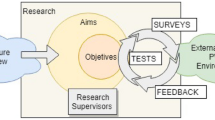Abstract
People suffering from cognitive deficits – Alzheimer disease, schizophrenia, brain injuries – are often obliged to live in medical institutions. Pervasive computing and mobile applications are key technology that may help them to stay at home. They can be at the root of information systems as cognitive assistance and telemonitoring. Inside a smart house, cognitive assistance could alleviate cognitive impairments by giving personalized environmental cues. Besides telemonitoring could inform relatives and medical staff of the disease evolution and could alert them in case of emergency. But cognitively impaired people must not be confined in their home. Cognitive assistance and telemonitoring must be available outdoors too. This paper sketches an infrastructure and prototypes making the most of indoor pervasive computing and outdoor mobile computing to achieve cognitive assistance and telemonitoring.
Access this chapter
Tax calculation will be finalised at checkout
Purchases are for personal use only
Preview
Unable to display preview. Download preview PDF.
Similar content being viewed by others
References
Arnold, K. (ed.): The Jini Specifications, 2nd edn. Addison-Wesley, Reading (2000)
Boone, K.: Using X10 for Home Automation, http://www.kevinboone.com/x10.html
Carboni, D., et al.: e-MATE: An open architecture to support mobility of users. In: Fifth Intn’l Baltic Conf. on Databases and Information Systems, Tallinn, Estonia, June 3-6 (2002)
Carboni, D., et al.: Interactions Model and Code Generation for J2ME Applications. In: 4th Int. Symp. on Human Computer Interaction with Mobile Devices Mobile, HCI 2002, Italy (2002)
Kautz, H., et al.: An Overview of the Assisted Cognition Project. In: AAAI 2002, workshop (2002)
Paquette, G., et al.: EpiTalk, generating advisor agents for existing information systems. J. of AI in Education, AIED Society, AACE 7(3-4) (1996)
Pigot, H., et al.: The role of intelligent habitats in upholding elders in residence. In: 5th Intl Conf. on Simulations in Biomedicine, Slovenia, WIT Press (2003)
Pigot, H., et al.: The intelligent habitat and everyday life activity support. In: 5th international conference on Simulations in Biomedicine, Slovenia (April 2003)
Reisberg, B., et al.: The Global Deterioration Scale for Assessment of Primary Degenerative Dementia. Am. J. Psychiatry 139, 1136–1139 (1982)
Rialle, V., et al.: An experimental Health Smart Home and its distributed Internet-based Information and Communication System. In: MEDINFO 2001, pp. 1479–1483. IOPress (2001)
Schmidt, C.F., et al.: The plan recognition problem: an intersection of psychology and artificial intelligence. Artificial Intelligence 11, 45–83 (1978)
Weiser, M.: Computer for the 21st Century. Scientific American (1991)
Author information
Authors and Affiliations
Editor information
Editors and Affiliations
Rights and permissions
Copyright information
© 2004 Springer-Verlag Berlin Heidelberg
About this paper
Cite this paper
Giroux, S., Pigot, H., Mayers, A. (2004). Indoors Pervasive Computing and Outdoors Mobile Computing for Cognitive Assistance and Telemonitoring. In: Miesenberger, K., Klaus, J., Zagler, W.L., Burger, D. (eds) Computers Helping People with Special Needs. ICCHP 2004. Lecture Notes in Computer Science, vol 3118. Springer, Berlin, Heidelberg. https://doi.org/10.1007/978-3-540-27817-7_140
Download citation
DOI: https://doi.org/10.1007/978-3-540-27817-7_140
Publisher Name: Springer, Berlin, Heidelberg
Print ISBN: 978-3-540-22334-4
Online ISBN: 978-3-540-27817-7
eBook Packages: Springer Book Archive




